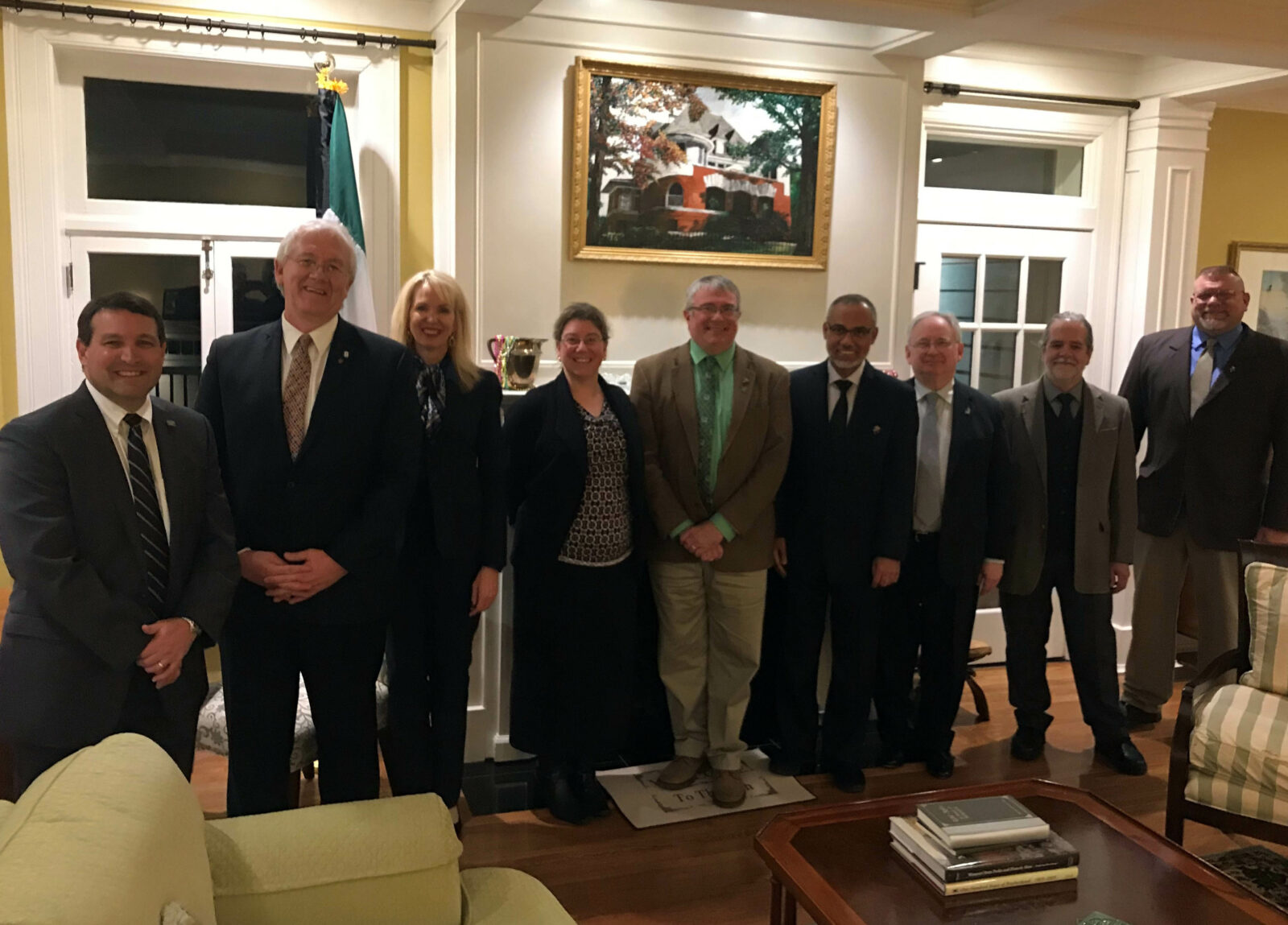Missouri S&T secures $2 million contract to develop engineering program in Kuwait
Posted by Sarah Potter

Missouri S&T’s leadership meeting with GUST leadership in November 2018 in Rolla, Missouri.
Missouri S&T faculty will help a university in Kuwait develop its own undergraduate engineering program through a nearly $2 million contract.
The Gulf University of Science and Technology (GUST), a private university near Kuwait City on the Persian Gulf, signed a $1.9 million, five-year agreement with Missouri S&T to establish new engineering programs and monitor the programs’ quality.
“This agreement brings our university to the forefront in a part of the world that is very westernized,” says Dr. Joseph Smith, the Wayne and Gayle Laufer Chair of Energy at Missouri S&T and the program’s principal investigator.
Eventually, S&T hopes students in undergraduate engineering courses in Kuwait will consider earning their graduate degrees in Rolla.
“Working with GUST and helping them implement their program is a natural fit to help them bring their undergraduate students to our university for their graduate work,” says Smith.
The relationship between S&T and GUST began through the University of Missouri-St. Louis (UMSL) and the leadership of Dr. Joel Glassman, academic director of UMSL’s international studies and programs. UMSL has worked with GUST for more than 15 years to establish programs in English, communications, business, computer science and other academic areas. GUST already offers courses in science, technology, mathematics and humanities, but university leaders there wanted to begin an engineering program. Glassman connected leadership at GUST with Missouri S&T.

Missouri S&T interim Chancellor Chris Maples signed an agreement with GUST President Walid Bouhamra.
In this five-year agreement, S&T faculty will help to establish undergraduate engineering programs in chemical, computer, electrical, petroleum, civil and environmental engineering as well as engineering management. A second five-year phase will focus on creating a program in mechanical engineering.
Smith says that engineering is particularly important to countries like Kuwait because their economy is heavily based on oil revenue, and engineers are the ones who run the chemical plants and petroleum refineries that drive their economies.
“Engineering is very important to the Middle East, and most Middle Eastern countries send their engineering students abroad to study,” says Smith. “As a strategic decision, Kuwait decided that they would like to evolve their local universities to teach their own students.”
The partnership will allow Kuwait to keep more students in their home country to earn engineering degrees and will give Missouri S&T an opportunity to offer advanced graduate degrees.
“Many international students are familiar with the east or west coasts in the U.S.,” says Jeanie Hofer, associate provost for international and cultural affairs at S&T. “Programs like this promote Missouri as a choice of destination. It is important that we continue to grow our university brand in the Middle East, as well as other regions in the world.”
The agreement also allows for international visits and collaboration among students and faculty of both institutions.
Missouri S&T faculty will help design classroom and laboratory spaces for GUST’s chemical, civil, environmental and petroleum engineering programs. They are also developing the structure and curriculum for the first phase of engineering programs.
“One of the great opportunities for a professor is to collaborate, and we’re always looking for ways to do that,” says Smith.
Hofer adds that programs like this provide international education opportunities for S&T faculty, staff and students, and align with the goals established by the campus Internationalization Committee, a group that promotes international academic exchange. She says that S&T currently hosts about 40 students from Kuwait, and is the alma mater for several Kuwaiti graduates.
S&T faculty will also help ensure quality control of the GUST engineering program, recruit faculty and guide the university toward earning accreditation by ABET, the Accreditation Board for Engineering and Technology.
what wonderful news. GUST university in Kuwait is going above and beyond to develop suitably advanced curriculums in various fields.
No Petroleum Engineering degree?